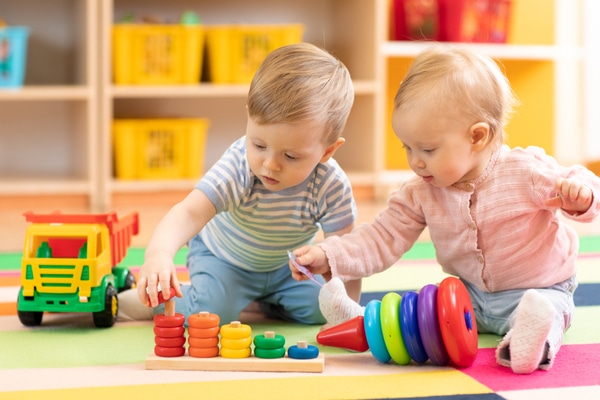In today’s fast-paced world, childcare centers serve as invaluable resources for families, providing a nurturing environment where children can learn, grow, and develop essential skills. Among these skills, building social competence ranks as one of the most critical aspects of early childhood development.
In this blog post, we’ll explore the crucial role childcare centers play in fostering social skills and preparing children for future success in relationships, school, and life.
Understanding Social Skills Development
Social skills encompass a range of abilities that enable individuals to interact effectively with others, navigate social situations, and build meaningful relationships. These skills include communication, cooperation, empathy, conflict resolution, and self-regulation.
While some aspects of social development begin at home, childcare centers offer unique opportunities for children to further refine and expand their social skills in a structured and supportive environment.

The Benefits of Childcare Centers for Social Development
- Opportunities for Peer Interaction
- Childcare centers provide a rich social setting where children can interact with peers from diverse backgrounds. Through group activities, play, and shared experiences, children learn valuable social skills such as sharing, taking turns, and cooperation.
- Guidance from Educators
- Trained childcare professionals serve as positive role models and mentors, guiding children in developing essential social skills. They provide gentle guidance, teach conflict resolution strategies, and encourage empathy and kindness towards others.
- Structured Social Activities
- Childcare centers offer structured activities designed to promote social interaction and teamwork. Group games, circle time, and collaborative projects provide opportunities for children to practice communication, cooperation, and problem-solving skills.
- Cultural Diversity and Inclusion
- Childcare centers celebrate cultural diversity and promote inclusion, exposing children to different languages, customs, and traditions. This fosters acceptance, empathy, and respect for others’ perspectives and backgrounds.
- Building Confidence and Self-Esteem
- Positive social interactions in childcare settings contribute to children’s confidence and self-esteem. Success in forming friendships, resolving conflicts, and expressing themselves fosters a sense of competence and belonging.
- Preparation for School and Beyond
The social skills learned in childcare centers lay the foundation for success in school and beyond. Children who develop strong social competence are better equipped to engage in classroom activities, collaborate with peers, and adapt to new social environments.

Strategies for Fostering Social Skills in Childcare Centers
- Promote Positive Peer Interactions
- Encourage cooperative play, sharing, and turn-taking during group activities.
- Teach Conflict Resolution Skills
- Teach children to express their feelings, listen actively, and find mutually beneficial solutions to conflicts.
- Model Empathy and Kindness
- Demonstrate empathy and kindness in interactions with children and encourage them to do the same.
- Provide Opportunities for Leadership
- Offer opportunities for children to take on leadership roles, collaborate on projects, and support their peers.
- Celebrate Diversity
- Incorporate multicultural activities, books, and materials to celebrate diversity and promote acceptance and inclusion.
- Encourage Positive Communication
- Teach children to communicate effectively, express their thoughts and feelings, and listen attentively to others.
Childcare centers play a vital role in nurturing social skills and fostering healthy development in young children. By providing a supportive environment where children can interact with peers, learn from trained educators, and practice essential social skills, childcare centers lay the groundwork for success in relationships, academics, and life.
As parents and educators, it’s essential to recognize the importance of social skills development and work collaboratively to support children in building strong foundations for social competence and well-being. Through intentional guidance, positive reinforcement, and a commitment to fostering inclusivity and empathy, childcare centers empower children to thrive socially and emotionally, setting them on a path toward lifelong success.
